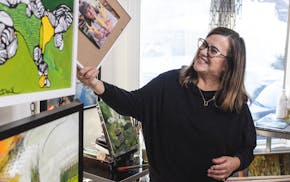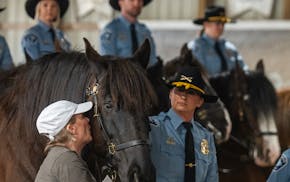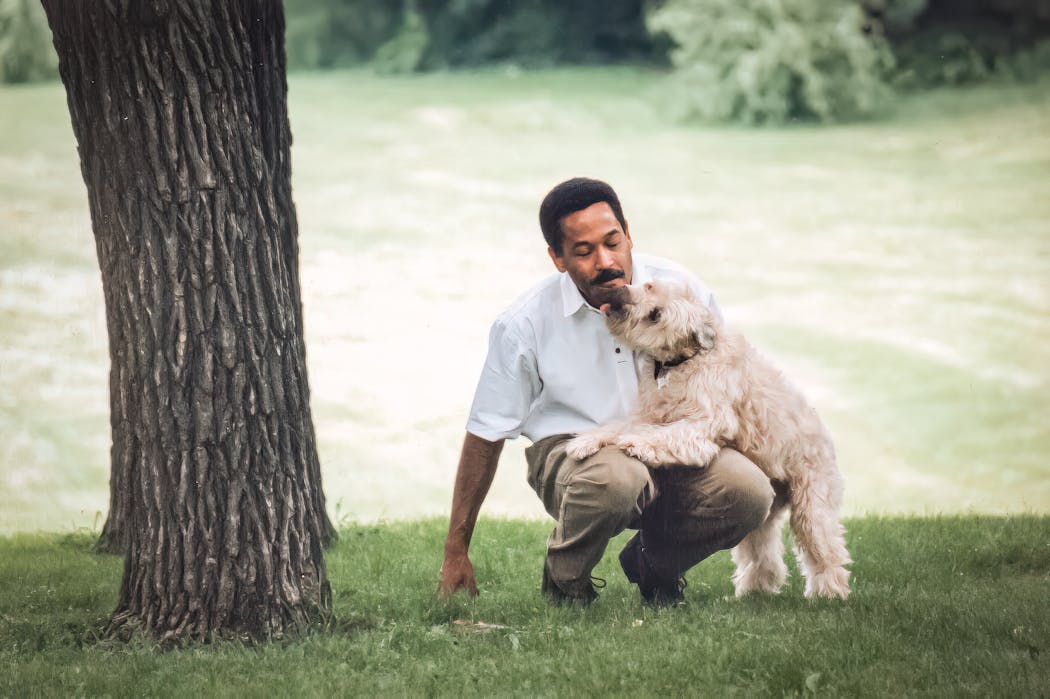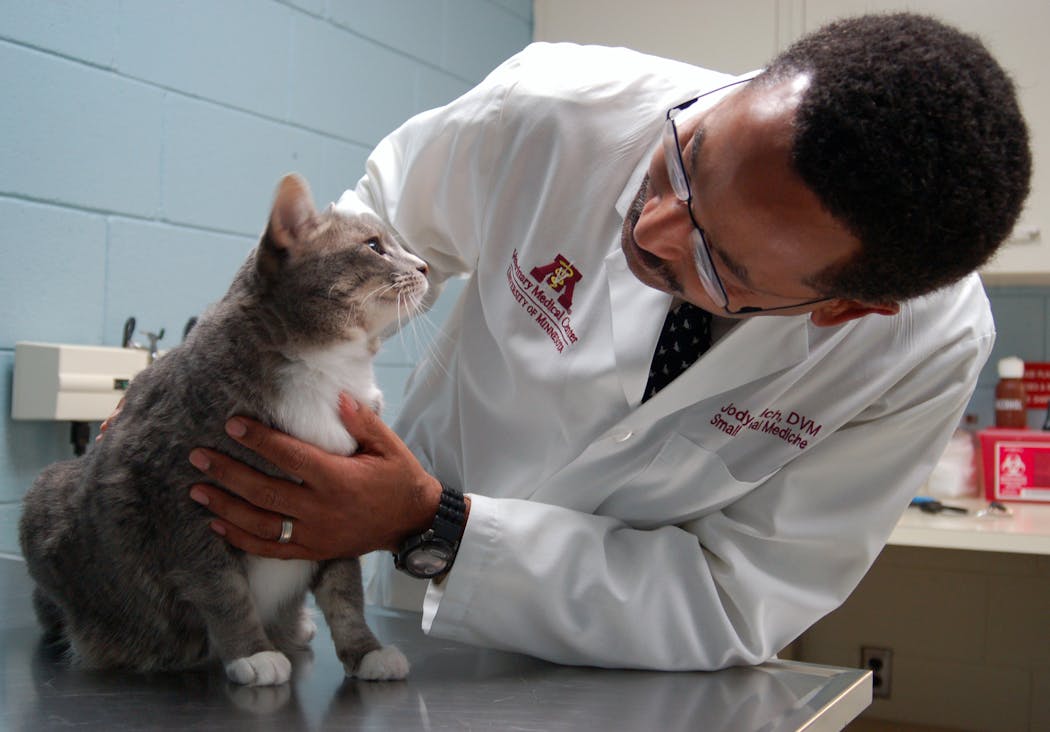Dogs can save your life, just by being dogs.
You pull the covers over your head. Shut out the universe. Ignore the emerging sun. Regret, loneliness and despair weigh on your body, and all you want to do is fight your demons from the mattress.
There was a period in his life when Jody Lulich was incapacitated by depression. But on one particularly rough morning in bed, he felt his wheaten terrier, Maud, scooch her back into his as she stretched all four legs. "I looked down at Maud. She looked up at me. I can't go to work, I told her."
If you have a dog, you likely know the rest. What started with a pair of eager eyes and a wagging tail leads to licks, barks, the digging of covers and a lot of bouncing.
Maud won.
"OK," Lulich finally told her. "I am getting up."
A professor of veterinary science at the University of Minnesota, Lulich recounts this scene in his new book, "In the Company of Grace: A Veterinarian's Memoir of Trauma and Healing." How Maud coaxed him out of bed that morning some 30 years ago will ring familiar to many dog owners, but Lulich's recovery from a scarred childhood is nothing but extraordinary.
The son of a Black mom who died by suicide and a white dad who pushed him away, Lulich, at 9, experienced another tragedy on the way to his mother's funeral. The car his father was driving struck a dog darting from the alley. His dad never stopped, and Lulich would forever carry that image of the injured dog — as well as the pain he imagined its family would suffer when they discovered their pet was gone.
"To lose my mom, and then to run over this dog and assume that they must feel like I do, I just felt terribly bad," Lulich told me, adding that the incident put him on the path to veterinary medicine as a way of repaying his debt. "I was trying to figure out ways to make it better, or less traumatic, because I felt what they would go through when they finally saw that dog."
Lulich is convinced that most veterinarians are built with a compassion gene. He considers that empathy a gift, though it also might make them more likely to be emotionally overwhelmed. One out of six veterinarians has considered taking their own life, according to the Centers for Disease Control and Prevention. Financial challenges, overwork, and being required to at times euthanize their patients are reasons often cited for their higher suicide rates. But Lulich said he's not convinced there's a clear narrative.
"It's a mystery," he said. "I think it's because no one has listened to them ... and maybe no one has supported them."
It took decades for Lulich to heal, and to open up about the trauma that shaped and steered him toward an accomplished career of caring for animals. His mother took her life by drinking antifreeze — and Lulich marvels today at the irony that he must relive the trauma of her death by teaching his students how to recognize the signs of this quick-acting poison. One of his lectures, aimed at saving animals from the chemicals that killed his mom, is titled: "Why Is This Dog's Vomit Green?"
Another irony is that Maud, the wheaten terrier who saved Lulich from his debilitating depression, is a dog he almost put down. Maud's owner asked him to euthanize her before she was about to move to another state. (A book excerpt published this month in the Star Tribune about this very episode inspired me to read Lulich's entire memoir, which did not disappoint.)
After Lulich drew up the solution, the owner changed her mind and made him promise he'd find Maud a suitable home. That home ultimately was his, even though Lulich at first resisted "because I did not know how long I could endure the pain of living," he wrote.
Before Lulich found a publisher in the University of Minnesota Press, his book was rejected by about 35 others. His life story is extraordinary, but his memoir is not easy to categorize. He details years of trying to win his father's acceptance, his beautiful friendship with an elderly Black woman in Alabama, the casual racism he experienced on the job, discovering people in his life who would champion his growth, and his coming out as a gay man. He learned later in life to set his secrets free.
"You have to be authentic," he said, "or the world doesn't know who to love."
After more than three decades at the U, the 65-year-old is "slowly retiring" to have more time for his husband and completely publish his research. (His specialty in urinary issues prompted fellow veterinarians to affectionately refer to him as the "Pee God.")
His memoir is less about veterinarians than it is about a journey of healing, giving back, and coming clean about who you are. He hopes it reaches imperfect people who are convinced that life won't get better.
Lulich is an example that the opposite can be true. "We do get broken at times, but under the right situations we'll be fixed."
And that goes back to our bond with animals. They give us a reason to get out of bed, which speaks as highly of them as it does of us.
"If you can take care of a living being who really can't give you anything in return except acceptance, that says a lot," he said. "You'll always have a purpose in life if you can help others."

Yuen: When cancer struck a second time, she found 'euphoria'

Yuen: The University of Minnesota's first male dance team member is turning heads by staying real
Yuen: How George Floyd's aunt healed her heart and lent her voice for justice

'This is an uprising': An oral history of the 6 days after George Floyd's murder





